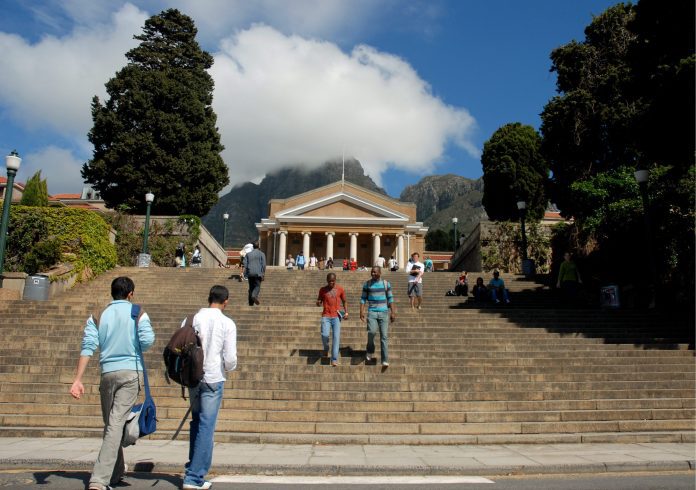The Department of Higher Education is yet to receive a report it requested from the University of Cape Town (UCT) chair of council Babalwa Ngonyama on the discord that has rocked Africa’s premier university in the recent months, said the department’s Deputy Minister Buti Manamela.
Manamela told parliament’s portfolio committee on higher education on Wednesday that the department is worried about media reports of tensions at the highest echelons of UCT.
“We have been made aware, initially through media reports but also through concerns raised by some members of the university’s council. Subsequent to this, the minister has written to the university council, to the chairperson of the council, to ask for a report,” Manamela told the portfolio committee.
“And it is solely on the basis of that report that the minister will take action. We are still awaiting the report from the university council … and I hope that the portfolio committee understands this limitation we have on our part. We are monitoring the situation there.”
The divided UCT council has since proposed the appointment of three respected judges to probe the conduct of its embattled vice-chancellor, Mamokgethi Phakeng, and Ngonyama.
The fallout between Phakeng and erstwhile deputy vice-chancellor for teaching and learning, Lis Lange, is said to be at the heart of the disharmony at the university.
In May, UCT announced that Lange had quit as head of teaching and learning with immediate effect. In a May 2 statement, Phakeng said Lange would not seek the renewal of her contract, which was scheduled to end in January 2023.
However, Lange is said to have disputed the reasons put forward by Phakeng for her resignation and blamed her and Ngonyama for her exit. Lange then dispatched a letter to the university’s senate stating her “real reasons” for her resignation.
Former judge president of the Supreme Court of Appeals Lex Mpati has been tipped to chair the panel that will probe allegations leveled against Phakeng and Babalwa.
The no-nonsense former Constitutional Court judge, Sisi Khampepe, who recently concluded her investigation into racism allegations at University of Stellenbosch, has also been approached to form part of the panel.
Retired Supreme Court judge Azhar Cachalia has also been proposed to be on the panel.
The panel’s investigation, expected to be concluded before the end of the year, will focus on three areas. First, the council has asked the panel to probe whether Phakeng and Ngonyama misled the faculty board, senate and/or council regarding Lange’s availability for second term and the reasons she did not pursue it.
Second, the panel will “investigate all matters related to executive relationships, including the number of, and reasons for resignations within and beyond the executive, with due consideration of reasons for this”.
And third, the judges have been asked to speak to current or departed staff and members of council on whether “they have signed a non-disclosure agreement or not, from which they are considered released insofar as this is legally feasible”.
Ngonyama told a council meeting in October that she had met Lange in January as part of her engagements with senior staff, as is protocol 18 months before the term of vice-chancellor ends.
“During this meeting, when I informed associate professor Lis Lange about the possibility that the vice-chancellor’s term of office would be renewed, associate professor Lis Lange became abrasive, aggressive and abusive, making clear her own ambition to succeed professor Phakeng as the vice-chancellor of the University of Cape Town,” she said.
Two council members Zama Khanyile and Kholiwe Makhohliso have since resigned. The two are seen as being part of the “Phakeng camp” with the 30-member council divided down the middle.
For more education news from Sunday World, click here.
Follow @SundayWorldZA on Twitter @sundayworldza on Instagram, or like our Facebook Page, Sunday World, by clicking here for the latest breaking news in South Africa. To Subscribe to Sunday World, click here.



